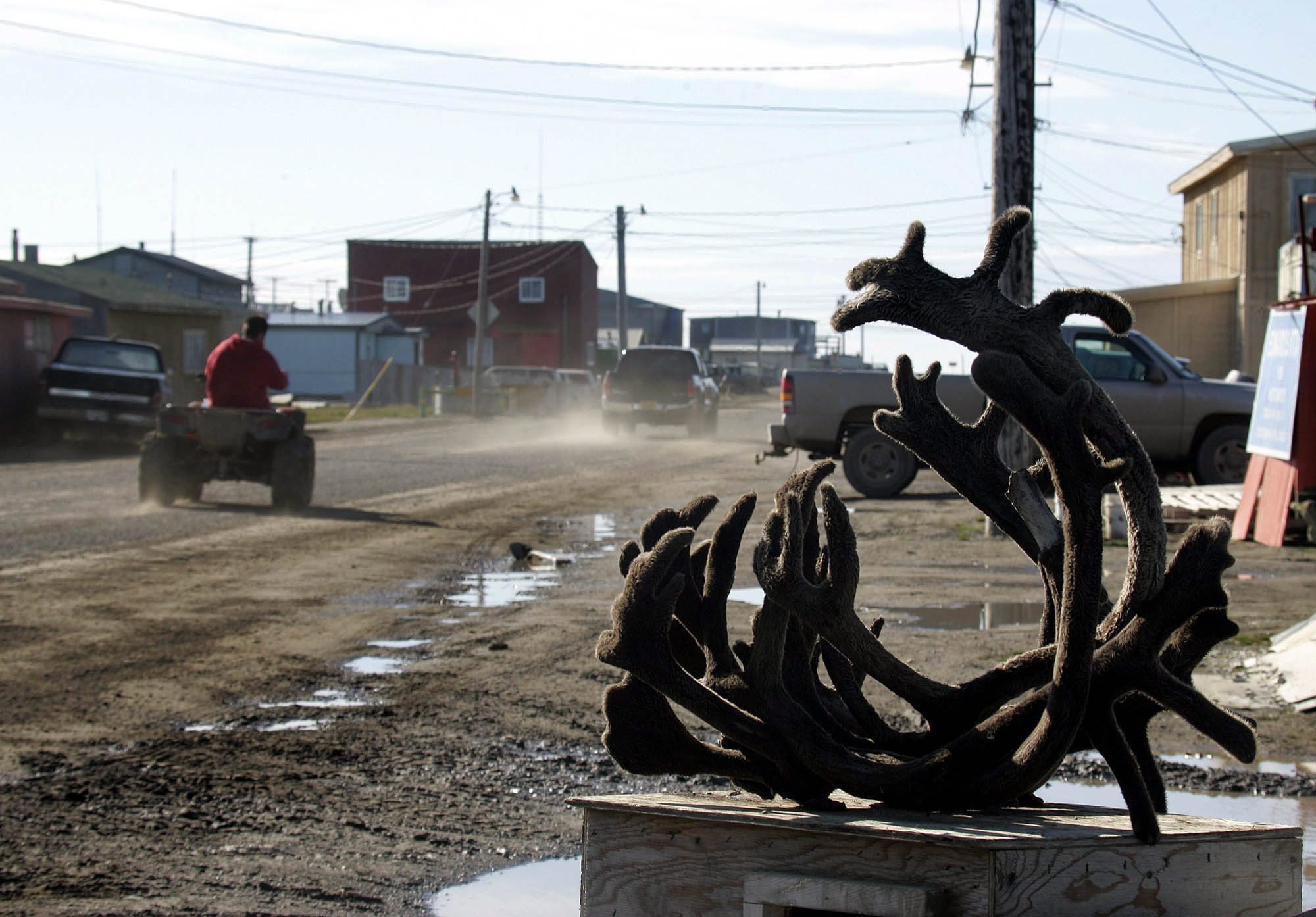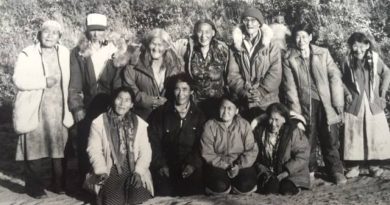Presbyterian Church formally apologizes to Alaska native people for denouncing culture

At 7:30 p.m. on Feb. 8, 2017 in Utqiagvik, an apology from the head of the Presbyterian Church will be offered* to the Alaska Native people of the North Slope.
The idea is to start a process of healing by acknowledging that the Church, however well intended, was wrong, when it denounced the cultures of Native people, both in Alaska and across the nation. Reverend Joe Reid is the pastor for the Utqiagvik Presbyterian Church. It is the oldest on the North Slope and shares the name of the community formerly known as Barrow. Reverend Reid said a vote by national church leaders in June was unanimous that an apology was needed.
“And I suggested that we ought to invite the Stated Clerk so that we could be the first to have them come up and do this apology to Alaska Natives,” Reid said.
The State Clerk is the top administrator and spokesperson for the Church.
Doctrine of Discovery
Reverend Curt Karns is the executive for the Presbytery of the Yukon, a region that stretches from Anchorage to the north. Karns gave an apology at AFN last fall. He says the wrong started with a 16th century action called the Doctrine of Discovery, a manifest destiny type document that gave churches the rights to take land from non-Christian people and sell it to other Christians. Along with land exploitation, came the exploitation of the original people who lived there. He says when the churches came to Alaska, they tried to figure out how to minister in an area so big. Enter Sheldon Jackson, the Presbyterian director for missions in the west.
“He organized a conference of protestant leaders from across the country and they really did, they just divided it up and said Lutherans will go there and Methodists will go here and Covenant Church over there and they just divided it up,” Karns said.
Reverend Karns said they wanted to do good things, but they came with the assumption that being Christian meant becoming more European. And he said, that superiority attitude is at the heart of the apology.
“That’s the kind of thing that leads to racist attitudes, it leads to cultural paternalism, that’s the kind of thing that we’re apologizing for and there were specific things that happened in terms of teaching people that their language was, they need to learn English, you can’t speak your language, there was one missionary that went so far to say the language was so heathen you couldn’t put Christian thought into it. That kind of thinking is so un-Christian that we have to apologize for it. We still deal with racism, with cultural paternalism, we’re not done with that today.”
Coming together
During the Presbyterians meeting in June, another historic event took place, in addition to the vote to apology and denounce the concept of the Doctrine of Discovery, the church made the first African American Reverend, the new Stated Clerk Jay Herbert Nelson II is in Utqiagvik to make the apology this evening.
“We are apologizing for what we have done, even with some of the good intentions that those who started schools in Alaska had, we were wrong,” Nelson said. “And I think that frees us to some degree but it also frees those who have carried the burdens and who have seen many current day problems particularly with families resulting in some tragic responses to life in this present day.”
Lucy Apatiki is from Gambell on St Lawrence Island, she is a former lay pastor and chokes back tears as she talks about the church doctrine that ripped her community apart.
“And we came against resistance from our own people within the church and because of that, we researched why that was. The first Christians in our community were told that our drumming and dancing were evil. It was like they were indoctrinated to believe that the drum and dancing were evil.”
Apatiki said the apology is a huge step toward healing and coming together to respect the integrity of Native cultures within the church.
*This story was first published on Alaska Public Media’s website on February 8, 2017.
Related stories from around the North:
Canada: Arctic missing from Paris climate agreement, Eye on the Arctic
Finland: Indigenous rights under fire says Finnish Saami leader, YLE News
Greenland: What the EU seal ban has meant for Inuit communities in the Arctic, Eye on the Arctic
Norway: Repressive policy deprived Sámi people of language, culture : Norway’s prime minister, The Independent Barents Observer
Sweden: Sami Blood: A coming-of-age tale set in Sweden’s dark past, Radio Sweden
Russia: Russia brands Arctic indigenous organization as “foreign agent,” Barents Observer
United States: Arctic conference spotlights indigenous issues, Alaska Dispatch News



